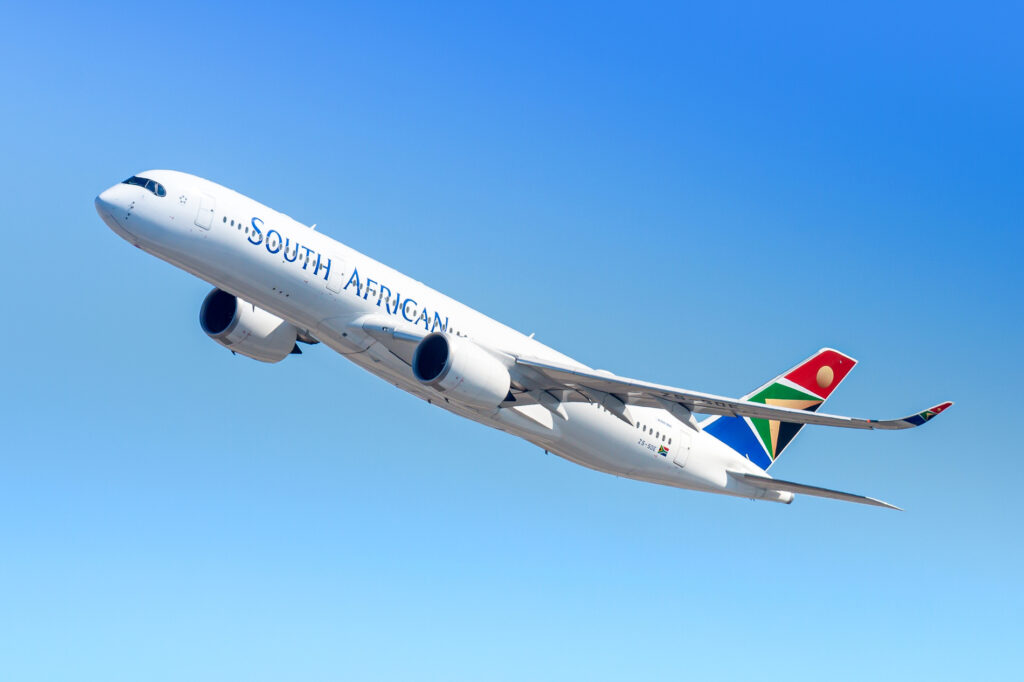In an ongoing investigation by South Africa’s Special Investigating Unit (SIU), the prosecutors presented their preliminary findings in front of the South African Parliament, describing rampant corruption at the airline.
SIU began its investigation into South African Airways (SAA) in December 2019, as the unit alleged that the airline and the government “may have suffered losses that may be recovered.” The investigation took a deeper look into alleged maladministration, unlawful conduct by employees of SAA and unlawful appropriation of public funds, amongst other things, which took place between January 2002 and December 2019. SIU also looked into the purchase of Airbus aircraft, maintenance and legal services and service providers to support the implementation of the SAA turnaround plan, which was contracted by the airline in December 2019.
Shady aircraft purchases
The investigators appeared to present their results in front of the South African Parliament’s Standing Committee on Public Accounts (SCOPA). The SIU depicted, for example, that SAA approved a sale-and-leaseback (SLB) transaction for 20 Airbus A320 aircraft in September 2012 to the Bank of China (BOC). Conversely, following considerations regarding the risk profile associated with BOC, the number of sold aircraft to the bank dropped to five. The rest of the A320s were placed into a bidding process between three parties, including BOC, Standard Chartered/Pembroke and ICBC/Standard Bank. Pembroke won the bidding contest for 10 of the jets, paying $41 million per one A320 to the South African Carrier. The airline itself previously paid $38.9 million for one Airbus aircraft, making a profit on the SLB transaction.
However, SIU found holes in the whole transaction. South African Airways paid Airbus $115.4 million for Pre-Delivery Payments (PDP), under an agreement signed on January 24, 2013. When SAA and Pembroke agreed to the SLB transaction, the leasing company had to reimburse the PDP. The SIU had not received any proof of that occurring.
Furthermore, SAA paid a monthly lease fee of $323,500 per month, for a lease period of 12 years. The total value of the lease would put the price of an aircraft at $46.5 million, excluding maintenance, which was the responsibility of the airline, according to the contract.
“Even though this was an operating lease, SAA had to accept risks and rewards and to maintain its own aircraft and then submit the receipts to Pembroke within six months after maintenance,” commented Zodwa Xesibe, a Program Manager at SIU, during the session with Parliament members. According to the investigators, the airline lost up to R356.9 million ($23.7 million) on the SLB. Xesibe also pointed out that the unit was still awaiting all proof of Pembroke’s payments to South African Airways.
Investigators also looked at two additional sets of contracts. One was a dry lease agreement with Flyfofa Airways to lease second-hand cargo charters, which the investigators determined followed an irregular procurement process. Xesibe pointed out that one aircraft was grounded for eight months, yet SAA kept paying Flyfofa Airways for its services, as one of the abnormalities of the agreement between the two sides.
“We are looking at a possible recovery of R300 million ($19.9 million) in this matter,” she added, as SIU is also preparing evidence for criminal prosecution. The second set of contracts, which involved five individual aircraft, were also found to be full of irregularities. For example, despite the fact that the airline paid for one of them, it had not taken a single flight for the airline.
A further 84 Maintenance agreements were also investigated. For one, a contract with McKinsey, worth over R12 million ($798,912), was again full of irregularities. “As a result of the evidence that we presented to them, McKinsey offered to pay the entire contract value before appearing in front of the State Capture Enquiry,” stated Xesibe.
The SIU is also still investigating the airline’s employees abusing the travel rebate policy, which has allegedly cost SAA around R600 million ($39.9 million) in FY2018/2019 alone. “There were allegations that members of SAA were selling the travel benefit for financial gain,” said the investigator.
Problems in the Turnaround plan
The latest findings by the SIU, in addition to the funds that the State is looking to recover, were revealed as the airline is still amidst its turnaround plan, initiated in December 2019.
The company hired two service providers: one to overlook Business Process Management, while the other was responsible for Revenue Assurance Management. In total, the two contracts were worth R170 million ($11.3 million) and both were awarded to TATA. Once again, SIU found irregularities in the two contracts. “The person that was dealing with this procurement was conflicted because he had relations with this company. However, he resigned from SAA and what we have done we recommended the cancelation of this contract immediately,” which allowed the airline to save up to R130 million ($8.6 million), in addition to another R78.7 million ($5.2 million) that the investigators are hoping to recover.
“The state of SAA at the moment is dire,” bluntly put it Andy Mothibi, Head of the SIU. “In this case, the airline is actually almost is at its disintegration,” he continued. “Although my colleague indicated that it is an on-going investigation and it has been proclaimed just over a year ago, factoring COVID-19, the team threw up a project plan that the investigation would probably end in 2022. But we would like to fast-track that,” as Mothibi asked for more resources from the Committee. “We need to determine as quickly as possible where we can recover or ensure that SAA claims back whatever has been lost from anyone,” he concluded.
South African Airways has been under bankruptcy protection since December 2019. The airline, which has not seen a profitable year since 2011 and more than $2 billion in bailout sums, has not flown since March 2020. The company plans to lift off the ground once again in May 2021, starting by operating domestic and regional flights. International flights are suspended until at least October 30, 2021.

